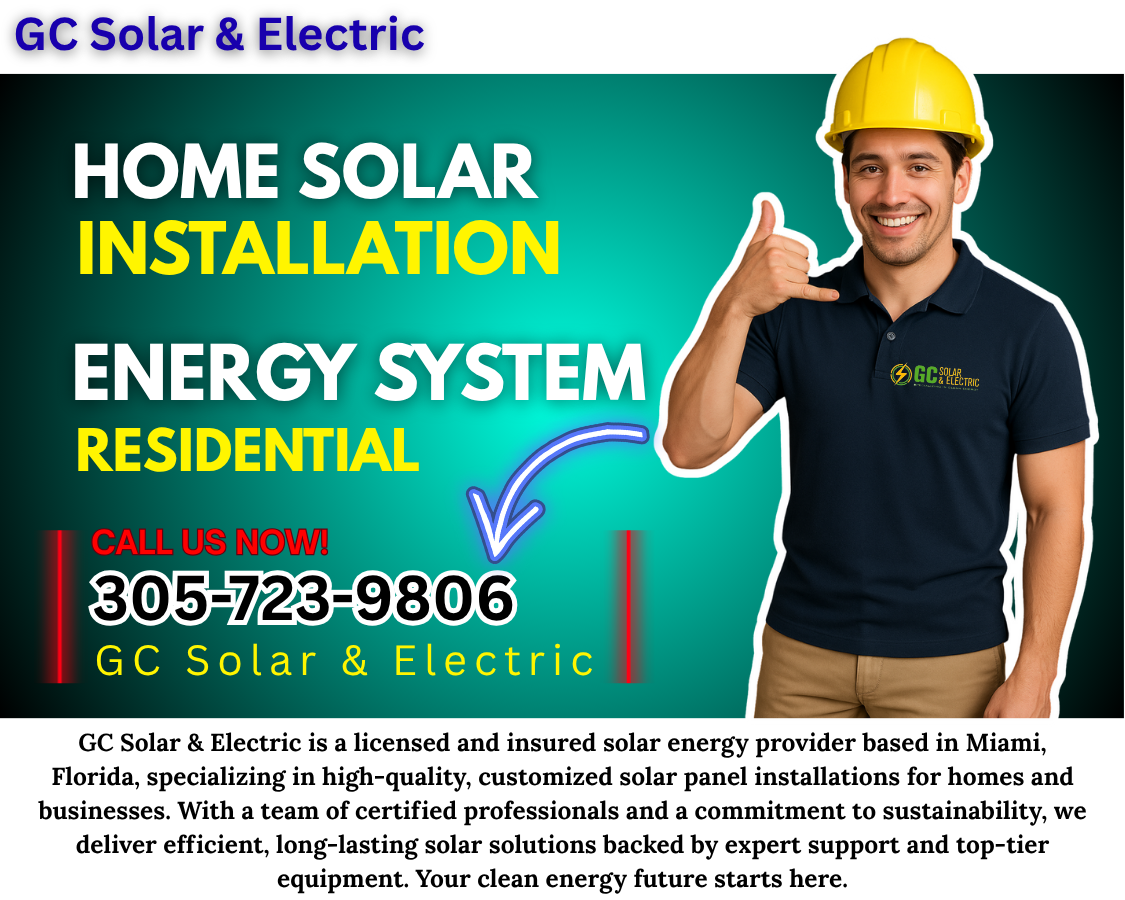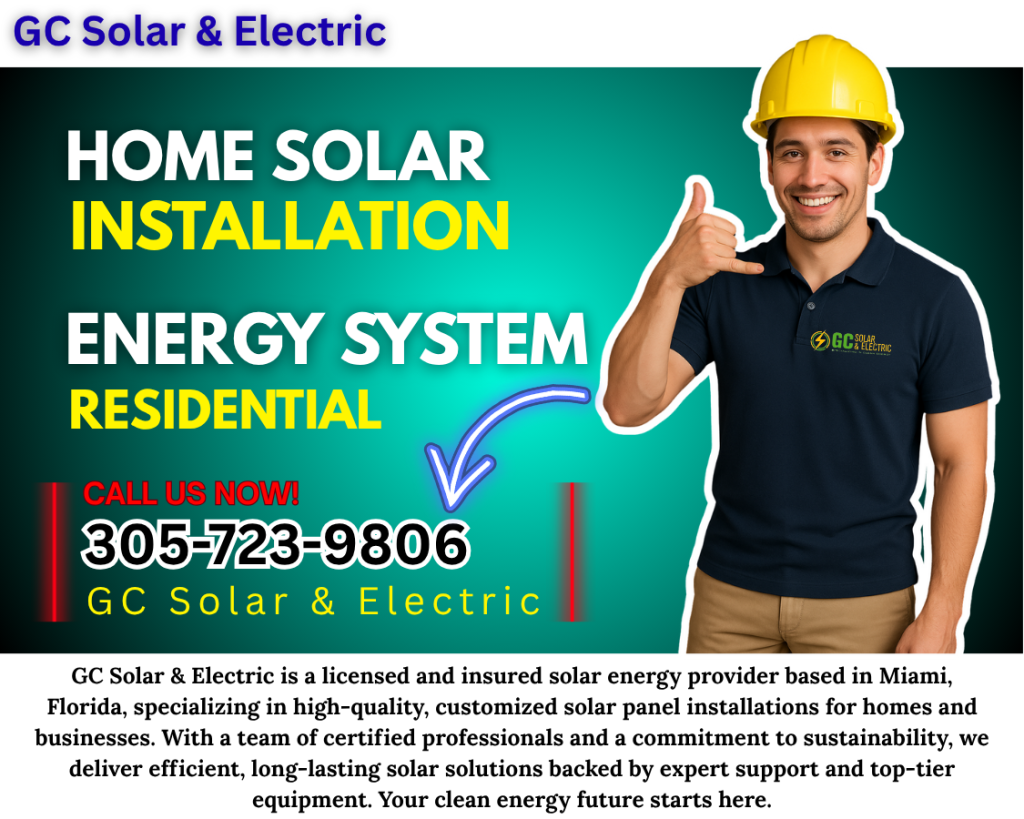
Switching to solar power is a smart move for homeowners who want to save money and help the planet. But before you dive in, getting a home solar energy system quote is the first step to understanding what’s involved. A good quote tells you about costs, equipment, and savings, giving you a clear picture of what to expect. With energy prices climbing and eco-friendly living on the rise, now’s a great time to explore solar energy for your home. This article breaks down everything you need to know about getting a home solar energy system quote, from what’s included to how to compare offers and avoid pitfalls. Let’s make the process simple and exciting!
Why Get a Home Solar Energy System Quote?
Understanding the value of a detailed quote
A home solar energy system quote is like a roadmap for your solar journey. It shows you the costs, equipment, and potential savings of installing solar panels on your home. Without a clear quote, you’re guessing about what you’ll pay and what you’ll get. A good quote helps you make informed decisions, compare installers, and avoid surprises. It also shows how solar can cut your electric bills and boost your home’s value while reducing your carbon footprint. By getting multiple quotes, you can find the best deal and feel confident about your investment.
Solar quotes aren’t just about price. They include details like the number of panels, type of inverters, and installation costs. They also estimate how much energy your system will produce and how much you’ll save over time. With this info, you can see if solar makes sense for your home and budget. Plus, a quote lets you check if the installer is trustworthy and uses quality equipment. Ready to explore? Start by requesting quotes from vetted installers to kick off your solar journey.
Call to Action: Curious about solar savings? Request a free quote today to see how much you can save with solar power!
What’s Included in a Solar Quote?
Breaking down the key components
A home solar energy system quote should give you a full picture of the project. Here’s what you’ll typically find in a solid quote:
-
System Size: Measured in kilowatts (kW), this shows how much power your system can generate. The average U.S. home needs about 6-11 kW, depending on energy use and roof size.
-
Solar Panels: The quote lists the number, brand, and model of panels, along with their wattage (e.g., 400W per panel). It may also mention the panel’s efficiency, which affects how much energy they produce.
-
Inverters: These convert solar energy into usable electricity. Quotes should specify the type (string, micro, or hybrid) and brand.
-
Installation Costs: This covers labor, wiring, mounting hardware, and permits. It’s often a big chunk of the total cost.
-
Estimated Savings: Quotes include projections of energy production and bill savings, based on your location and roof setup.
-
Warranties: Look for details on panel, inverter, and installation warranties, typically 25 years for panels and 10-12 years for inverters.
-
Financing Options: Some quotes outline payment plans, like loans, leases, or cash purchases.
Here’s a quick table to make it clear:
|
Component |
Details to Look For |
|---|---|
|
System Size |
Kilowatts (kW), e.g., 6-11 kW for average homes |
|
Solar Panels |
Brand, model, wattage, efficiency |
|
Inverters |
Type (string/micro), brand, warranty |
|
Installation Costs |
Labor, wiring, permits, mounting |
|
Savings Estimate |
Annual energy production, bill savings |
|
Warranties |
Panels (25 yrs), inverters (10-12 yrs), installation |
|
Financing |
Loan, lease, cash options |
A complete quote ensures transparency and helps you compare offers. If something’s missing, ask the installer to clarify.
How to Get Accurate Solar Quotes
Steps to ensure reliable estimates
Getting an accurate home solar energy system quote takes a bit of prep. Follow these steps to make sure you’re getting the best info:
-
Know Your Energy Use: Check your electric bills to see how many kilowatt-hours (kWh) you use monthly. This helps installers size your system right.
-
Assess Your Roof: South-facing roofs with little shade work best. Note your roof’s size, angle, and condition (e.g., no leaks or old shingles).
-
Research Installers: Look for certified pros with good reviews. Check sites like EnergySage or SolarReviews for vetted companies.
-
Request Multiple Quotes: Get at least three quotes to compare prices, equipment, and services. This also gives you leverage to negotiate.
-
Ask Questions: Clarify details like warranties, financing, and timelines. A good installer will explain everything clearly.
-
Check Incentives: Ask about federal tax credits (30% until 2026) and local rebates to lower costs.
By doing your homework, you’ll get quotes that match your home’s needs and avoid inflated estimates. Accurate quotes lead to better decisions and bigger savings.
Call to Action: Ready to compare quotes? Use an online solar marketplace to get free, no-pressure quotes from trusted installers!
Comparing Solar Quotes Like a Pro
Tips for evaluating offers
Not all solar quotes are created equal. To pick the best one, focus on these factors:
-
Cost Per Watt: Divide the total cost by the system size (in watts) to get the price per watt ($/W). The U.S. average in 2025 is about $2.52/W before incentives. Lower isn’t always better—check equipment quality.
-
Equipment Quality: Look for well-known brands like SolarEdge or QCells for panels and inverters. Check warranties and performance ratings.
-
Savings Projections: Compare estimated energy production and savings. Be wary of overly optimistic numbers, as they depend on weather and roof setup.
-
Financing Terms: Loans often have 6-36% interest rates, while leases may lock you into long terms (20-25 years). Pick what fits your budget.
-
Installer Reputation: Read reviews and check certifications (like NABCEP). A reliable installer ensures a smooth process.
Here’s a comparison table to help:
|
Factor |
Quote A |
Quote B |
Quote C |
|---|---|---|---|
|
System Size (kW) |
8 kW |
7.5 kW |
8.5 kW |
|
Total Cost |
$20,000 | $18,750 | $22,000 |
|
Cost Per Watt ($/W) |
$2.50 | $2.50 | $2.59 |
|
Panel Brand |
QCells |
SunPower |
LG |
|
Inverter Type |
Micro |
String |
Hybrid |
|
Warranty (Panels) |
25 yrs |
25 yrs |
30 yrs |
|
Estimated Annual Savings |
$1,200 | $1,100 | $1,300 |
By comparing these factors, you’ll spot the best value. Don’t just go for the cheapest—balance cost, quality, and service.
Benefits of Going Solar
Why solar is worth it
A home solar energy system quote isn’t just about costs—it shows the value of going solar. Here’s why it’s a great choice:
-
Lower Bills: Solar panels can cut your electric bill by 50-70%, depending on your system and energy use.
-
Eco-Friendly: Solar reduces your carbon footprint by using clean energy instead of fossil fuels.
-
Home Value Boost: Homes with solar panels often sell for 4-7% more, as buyers love energy savings.
-
Incentives: The federal solar tax credit (30% until 2026) and state rebates lower your upfront costs.
-
Energy Independence: Generate your own power and rely less on the grid, protecting against rising energy prices.
Solar also requires little maintenance—panels last 25-30 years with just occasional cleaning. Plus, you might earn money by selling excess power back to the grid through programs like the Smart Export Guarantee.
Call to Action: Want to see how much solar can save you? Get a personalized quote to discover your potential savings!
Avoiding Common Solar Quote Pitfalls
Staying smart and safe
Some solar quotes can hide surprises. Here’s how to avoid common traps:
-
Vague Quotes: If a quote lacks details (e.g., panel brand or warranty info), ask for clarification. Transparency is key.
-
Overhyped Savings: Be skeptical of huge savings claims. Realistic estimates depend on your roof, location, and energy use.
-
Pushy Sales Tactics: Avoid installers who pressure you to sign fast. Take time to compare and research.
-
Lowball Prices: Super-cheap quotes might use low-quality equipment or skip permits, leading to problems later.
-
Hidden Fees: Check for extra costs like interconnection fees or battery add-ons not mentioned upfront.
Always read reviews and verify the installer’s credentials. A trustworthy company will answer questions and provide clear, detailed quotes.
Financing Your Solar System
Payment options made simple
Paying for a solar system can feel daunting, but there are options to fit your budget:
-
Cash Purchase: Pay upfront for the lowest long-term costs and highest savings. Best if you have the funds.
-
Solar Loans: Borrow $1,000-$100,000 with 2-7 year terms. Interest rates vary (6-36%), but you own the system.
-
Leases or PPAs: Pay a monthly fee to use the system without owning it. Good for low upfront costs, but savings are smaller.
-
Incentives: Use the 30% federal tax credit (until 2026) and local rebates to reduce costs.
Here’s a quick look at financing options:
|
Option |
Upfront Cost |
Ownership |
Savings Potential |
|---|---|---|---|
|
Cash Purchase |
High |
Yes |
High |
|
Solar Loan |
Low-Med |
Yes |
Medium-High |
|
Lease/PPA |
None |
No |
Low-Medium |
Talk to your installer about financing and check with banks for loans. The right choice depends on your budget and goals.
Call to Action: Explore financing options with a trusted solar provider to find the best fit for your home!
FAQ: Your Solar Quote Questions Answered
What’s in a home solar energy system quote?
A home solar energy system quote is a detailed breakdown of what it costs to install solar panels on your home. It typically includes the system size (in kilowatts), the number and brand of solar panels, the type of inverter (like string or micro), and installation costs, which cover labor, wiring, and permits. You’ll also see estimated energy production and savings based on your home’s location and roof setup. Warranties are another key part—most panels come with 25-30 year guarantees, while inverters have 10-12 year warranties. Some quotes also list financing options, like loans or leases, and available incentives, such as the 30% federal tax credit (available until 2026). A good quote is clear and transparent, helping you understand the full scope of the project. If details are missing, ask the installer to clarify. To get the best deal, compare at least three quotes from certified installers with strong reviews. This ensures you’re getting quality equipment and service for your investment.
How many quotes should I get for solar?
You should aim to get at least three home solar energy system quotes to compare options effectively. Multiple quotes let you see differences in price, equipment, and services, helping you find the best deal. Each installer may offer different system sizes, panel brands, or financing plans, so comparing them ensures you’re not overpaying or getting low-quality gear. For example, one quote might have a lower cost per watt but use less efficient panels, while another might include a better warranty. Three quotes give you enough variety to spot red flags, like vague details or pushy sales tactics, without overwhelming you with too many options. Check each installer’s reviews and certifications, like NABCEP, to ensure they’re reputable. Use online platforms like EnergySage to simplify the process—they connect you with vetted installers for free. Comparing quotes also gives you leverage to negotiate better terms. Take your time to review each one carefully to make a confident choice.
Are solar quotes free?
Yes, most home solar energy system quotes are free from reputable installers. Companies offer free quotes to attract customers, often requiring only basic info like your address and monthly electric bill. Some may ask for a quick roof assessment or energy usage details to tailor the quote, but there’s usually no cost or obligation. Be cautious of companies that charge for quotes or pressure you to sign quickly—these are red flags. Free quotes are standard because installers compete for your business, especially through platforms like SolarQuotes or EnergySage, which connect you with pre-vetted providers. Always confirm the quote is free before sharing details, and avoid sharing sensitive info like bank details upfront. If an installer tries to charge or push a hard sell, move on to another provider. Getting multiple free quotes ensures you find a trustworthy installer with transparent pricing.
How long does a solar quote take?
Getting a home solar energy system quote usually takes a few days to a week, depending on the installer and process. Online tools, like those from Tesla or Solar Quote, can give instant estimates in under a minute by using your address and bill info. These are rough, though, and may not account for your roof’s specifics. For a detailed quote, installers often need to review your energy usage, roof size, and shading. This might involve a virtual or in-person assessment, which can take 1-3 days to schedule. After that, they’ll prepare a customized quote, typically delivered within 2-5 days. Some companies take longer if they’re busy or need utility data. To speed things up, have your electric bill and roof details ready. If you’re in a rush, online platforms can connect you with installers who provide quotes faster. Always review the quote carefully to ensure it’s accurate and complete before deciding.



